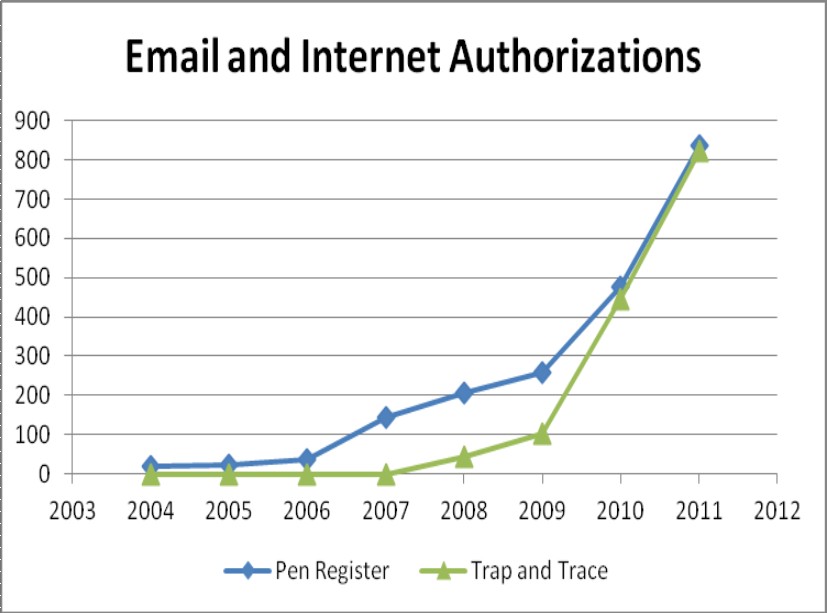The massive – yet hidden – monstrosity that is the US government’s warrantless surveillance powers are being met with some very limited push-back from a few members of Congress. A few Senators are trying to amend the FISA Amendments Act to make it more transparent, according to Adam Serwer at Mother Jones.
First, some background from Serwer:
The Republican-dominated House reauthorized the FISA Amendments Act in September with a lot of bombast from defenders who claimed that the law does not allow spying on American citizens. Not true: It states that Americans can’t be targeted, but it permits the government to collect communications between Americans and overseas targets suspected of involvement with terrorism. (The NSA once ended up with former President Bill Clinton’s emails). Congress retroactively legalized the Bush administration’s warrantless spying program in 2008, with the support of then-Sen. Barack Obama, who promised to reform the program as president. That hasn’t happened. Civil liberties organizations have tried to challenge the law as unconstitutional, only for the government to argue that they cannot sue because the program is so secret that the plaintiffs can’t prove it affects them.
For more Antiwar.com perspective, I wrote about such issues here and here. With regard to the ongoing efforts to get the government to disclose how many Americans have been caught up in the program, the Director of National Intelligence James Clapper says “it isn’t even ‘reasonably possible’ to estimate how many Americans are swept up in the NSA’s expansive dragnet.” That’s reassuring.
Here is at least an indication of what that information might look like, though. In September, the ACLU, “after months of litigation,” was provided with some internal documents that showed a dramatic increase in surveillance of Americans:
Here is a sampling from Serwer of the meager congressional efforts to address the surveillance monstrosity brought to you by the FISA Amendments Act:
- The public currently has no idea how often Americans have been swept up in the National Security Agency’s surveillance of foreign targets. When Wyden and Udall inquired about this, an NSA official deadpanned that it would violate Americans’ privacy to reveal how many Americans have had their communications monitored. A Senate aide confirmed Wyden’s office is working on an amendment that would compel further disclosure.
- Merkley previously introduced a bill in August, the Protect Americans’ Privacy Act, that would prevent the NSA from collecting information on Americans without a warrant simply by intercepting communications with a foreign target. That bill hasn’t made it past the committee stage, but Merkley intends to introduce an amendment that would prevent such “reverse targeting” of Americans under the NSA’s surveillance program.
- Wyden has expressed concern about “backdoor searches,” where Americans’ communications—emails, phone calls—are intercepted without a warrant and then stored in an NSA database, which government officials can later sift through. Wyden and Udall introduced an amendment in June to prevent these “backdoor searches,” only to see it voted down—but Wyden will likely make another attempt when the FISA amendments reauthorization comes up for a vote.
- The Foreign Intelligence Surveillance Court that approves requests for surveillance on suspected foreign agents in the United States also interprets the scope of the US government’s surveillance laws. This takes place entirely in secret, and only a few members of Congress and their staff members have the authority to view these laws in their entirety. As it stands, Americans have no idea how broadly (or narrowly) the secret court has interpreted these laws. Merkley is working on an amendment that would compel the government to declassify these opinions—or at least offer a declassified summary, so that members of Congress and the public can at least make informed judgments.






I shudder to think how much worse the situation would be if Bush and Cheney were still in the White House.
The graphs suggest that the opposite conclusion is warranted.
Indeed. It hardly matters which puppet fronted all of this activity. It would have continued (and WILL continue) no matter who occupies the Paper Throne.
Worse? Damned that we did and damned that we didn't but I can't see either being different. The only difference being that the ones squawking about Bush are criminally silent about Obama.
One wonders how many members of Congress have been "gently warned" by shadowy figures associated with the Culinary Institute of America to "not get too curious" about all of this.
Okay, but here's where I'm getting lost. There's FISA that's supposed to control "wiretapping", but then there's the bastard/rump TIA program for which they're building the facility in Utah. That's the part of the domestic surveillance program that records, files, and stores all communications associated with an individual identity. So what's the relationship? Do they now just need to go to FISA before calling up the file?
This takes place entirely in secret, and only a few members of Congress and their staff members have the authority to view these laws in their entirety.
There really needs to be a reliable, consistent counter-news source who has the confidence and trust of US victim nations to get the straight scoop from their point of view.
your résumé. You do if Ambassador to Saudi Arabia means what doing the "important work" needed under current policies